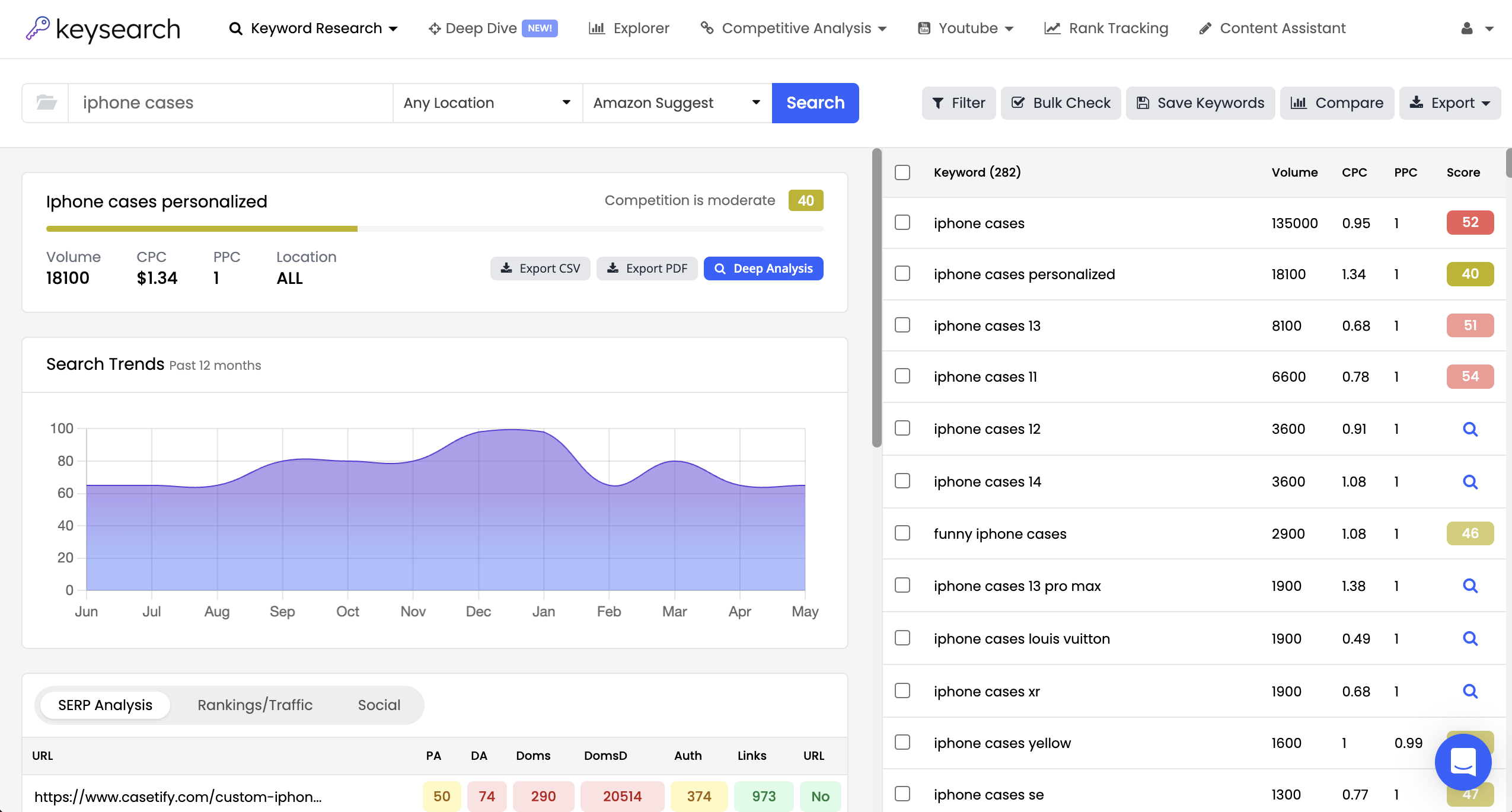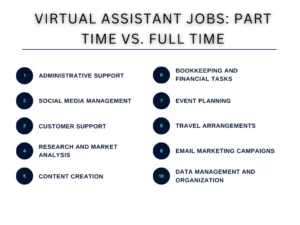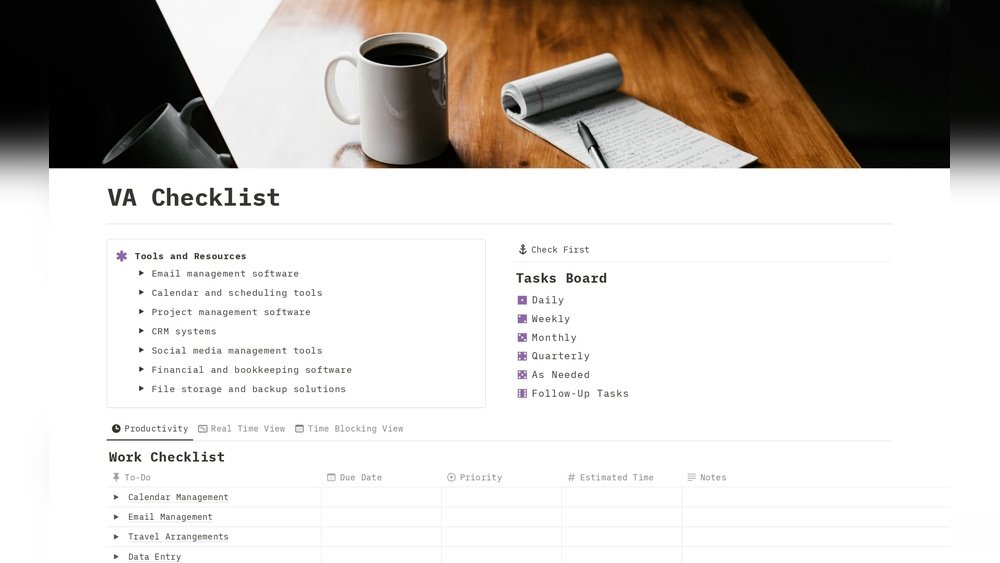Keyword research is a crucial step in any successful SEO strategy. It helps identify the words and phrases people use to search online.
Understanding these can boost your website’s visibility. Think of keyword research as the foundation of your online presence. Without it, you might miss out on valuable traffic. It helps you understand your audience’s needs and how they search for information.
This insight allows you to create content that resonates with them. Moreover, it can highlight opportunities you might overlook. Whether you’re a beginner or an expert, mastering keyword research can significantly impact your SEO efforts. In this blog post, we’ll explore the essentials of keyword research. We’ll discuss its importance, methods, and tools to help you get started. So, let’s dive in and uncover the secrets of effective keyword research.
Introduction To Keyword Research
Welcome to the world of Keyword Research. Understanding the right keywords is essential for any successful SEO strategy. This section will provide an introduction to keyword research and explain its importance in SEO.
Importance Of Keywords
Keywords are the backbone of SEO. They connect users with your content. When users search, they use specific words or phrases. These words are called keywords. Choosing the right keywords helps increase your website’s visibility.
Here are some reasons why keywords are important:
- Increased Traffic: The right keywords can drive more visitors to your site.
- Relevant Audience: Keywords help attract users who are interested in your content.
- Better Ranking: Search engines rank your site based on keyword relevance.
Seo And Keywords
SEO and keywords go hand in hand. Without keywords, your SEO efforts may not yield results. Integrating keywords into your content is crucial.
Here’s how you can use keywords in SEO:
- Include keywords in titles and headings. This makes them more visible.
- Use keywords in meta descriptions. It improves click-through rates.
- Incorporate keywords naturally in the content. Avoid keyword stuffing.
- Use long-tail keywords. They are more specific and less competitive.
To summarize, keywords are essential for a successful SEO strategy. They help improve your website’s visibility, attract the right audience, and enhance your search engine ranking.
Types Of Keywords
Understanding the types of keywords is crucial in keyword research. Knowing the difference helps in creating effective content. This can improve your website’s search engine ranking.
Short-tail Keywords
Short-tail keywords are broad search terms. They usually consist of one to three words. For example, “shoes”, “buy shoes”, or “cheap shoes”. These keywords have high search volumes. However, they are also very competitive.
Short-tail keywords are ideal for attracting a large audience. But, they might not always target specific user needs. Use these keywords for brand awareness and general topics.
Long-tail Keywords
Long-tail keywords are more specific search terms. They usually consist of three or more words. For example, “best running shoes for women”. These keywords have lower search volumes but are less competitive.
Long-tail keywords are ideal for targeting specific audiences. They help in attracting users with clear intent. Use these keywords to improve your conversion rates and meet specific user needs.
| Type | Example | Search Volume | Competition |
|---|---|---|---|
| Short-Tail Keywords | shoes | High | High |
| Long-Tail Keywords | best running shoes for women | Low | Low |
Keyword Research Tools
Keyword research is essential for SEO. It helps you find the right words and phrases to target. With the right tools, you can uncover valuable keywords. These tools help you understand what people search for. They also show how often these searches happen.
Free Tools
Google Keyword Planner is a popular free tool. It gives keyword ideas and search volume. Another free tool is Ubersuggest. It shows keyword ideas and competition level. AnswerThePublic offers a visual map of questions people ask. Keyword Tool uses Google Autocomplete to generate keyword ideas. Each of these tools provides valuable insights without costing anything.
Paid Tools
SEMrush is a powerful paid tool. It offers deep keyword research and competitive analysis. Ahrefs is another top choice. It provides extensive keyword data and backlink analysis. Moz Pro is well-known for its keyword difficulty score. This helps you understand how hard it is to rank for a keyword. Another paid option is KWFinder. It offers accurate keyword data and easy-to-understand metrics. These paid tools offer advanced features and detailed insights.

Credit: www.e2msolutions.com
Identifying Your Target Audience
Identifying your target audience is a crucial step in keyword research. Knowing who your audience is helps you create content that meets their needs. It also ensures your keywords match the terms they search for online. This section will guide you through understanding your audience better.
Demographics
Start by looking at your audience’s age, gender, and location. These factors shape their interests and search behavior. For instance, teenagers may use different terms than adults. Knowing your audience’s location helps you include local keywords. Gender can also play a role in keyword choices.
Use tools like Google Analytics to gather this data. Analyze your website visitors to get a clear picture. This information helps create content that resonates with them. Tailor your keywords to fit these demographic details.
Behavioral Insights
Understand how your audience behaves online. Look at their browsing habits and the type of content they consume. Are they active on social media? Do they prefer reading blogs or watching videos? These insights help you choose the right keywords.
Check your website’s analytics to see which pages get the most traffic. Identify the content that keeps users engaged. This data helps you understand what interests your audience. Use these insights to refine your keywords.
Consider the problems your audience faces. Think about the questions they ask. Keywords often come from common issues or needs. By addressing these, you attract the right visitors to your site.
Identifying your target audience takes time and effort. But it pays off by making your keyword research more effective. You create content that speaks directly to the people you want to reach.
Analyzing Competitor Keywords
Analyzing competitor keywords is a crucial part of keyword research. It helps you understand what keywords your competitors rank for. This insight guides your strategy and helps you find opportunities. By studying their keywords, you can improve your own search rankings.
Competitive Analysis Tools
Several tools help you analyze competitor keywords. SEMrush and Ahrefs are popular choices. These tools provide detailed reports on your competitors’ keywords. They show search volume, competition, and other metrics.
Google Keyword Planner is another useful tool. It offers insights into keyword performance. You can compare your keywords with your competitors’. This helps you identify strong and weak points in your strategy.
Identifying Gaps
Identifying gaps in your competitors’ keyword strategy is vital. Look for keywords they rank for but you don’t. This highlights opportunities for you.
Analyze their content to see what keywords they might be missing. You can create content targeting these gaps. This helps you attract traffic they might be missing.
Regularly updating your keyword strategy ensures you stay competitive. Focus on both high-volume and long-tail keywords. This balanced approach helps you cover all bases.

Credit: www.keysearch.co
Creating A Keyword Strategy
Creating a Keyword Strategy is vital for any successful SEO campaign. This process helps in identifying the right keywords to target, ensuring your content reaches the intended audience. A well-planned keyword strategy involves setting goals, prioritizing keywords, and monitoring their performance. Let’s dive into the steps required to create an effective keyword strategy.
Setting Goals
Before diving into keyword research, set clear goals. Define what you want to achieve with your SEO efforts. Are you aiming to increase website traffic, generate leads, or boost sales? Establishing clear objectives will guide your keyword strategy.
- Increase Website Traffic: Focus on high-volume keywords.
- Generate Leads: Target long-tail keywords.
- Boost Sales: Use buyer-intent keywords.
Prioritizing Keywords
Once you have a list of potential keywords, prioritize them based on their relevance, search volume, and competition. Here’s how you can do it:
- Relevance: Ensure the keyword matches your content and audience.
- Search Volume: Choose keywords with a significant number of searches.
- Competition: Select keywords with lower competition for better ranking chances.
A table can help you compare these factors:
| Keyword | Relevance | Search Volume | Competition |
|---|---|---|---|
| Keyword 1 | High | 10,000 | Low |
| Keyword 2 | Medium | 5,000 | Medium |
| Keyword 3 | Low | 2,000 | High |
By setting goals and prioritizing keywords, you can create an effective keyword strategy that aligns with your SEO objectives and maximizes your content’s reach.
Implementing Keywords In Content
Implementing keywords in your content is crucial for SEO success. Proper keyword implementation helps search engines understand your content. It also increases your chances of ranking higher. This section covers two main aspects: On-Page Optimization and Content Creation.
On-page Optimization
On-page optimization ensures your content is easily readable by search engines. Here are key elements to focus on:
- Title Tags: Include your primary keyword in the title tag. Make it catchy and relevant.
- Meta Descriptions: Use the primary keyword in the meta description. Keep it concise and informative.
- Headings: Use H1, H2, and H3 tags. Include keywords in these headings for better structure.
- URL Structure: Make sure the URL is clean and includes the primary keyword.
- Image Alt Text: Use keywords in the alt text of images. This helps in image search ranking.
- Internal Links: Link to other relevant pages on your site. Use anchor text that includes keywords.
Content Creation
Content creation is where you place your keywords naturally. Here’s how to do it effectively:
- Introduction: Mention the primary keyword in the first 100 words. This sets the context.
- Body Content: Use a mix of primary and secondary keywords. Ensure they fit naturally within the text.
- Subheadings: Include keywords in subheadings (H2, H3). This breaks up the text and adds SEO value.
- Keyword Density: Aim for a keyword density of 1-2%. Avoid keyword stuffing.
- Synonyms and LSI Keywords: Use synonyms and LSI (Latent Semantic Indexing) keywords. This helps cover related search terms.
- Conclusion: Reinforce the primary keyword. Summarize the main points.
Remember, the goal is to provide valuable content to your readers. Keywords should enhance the content, not disrupt it.
Tracking And Adjusting Strategy
Keyword research is essential for any successful SEO strategy. But it’s not enough to just find the right keywords. Tracking and adjusting your keyword strategy ensures your efforts remain effective. This section will guide you on how to monitor and adapt your strategy to stay ahead.
Monitoring Performance
Regularly check your keyword performance. Use tools like Google Analytics and Search Console. Look at metrics such as click-through rates, rankings, and conversions. This data will show how well your keywords are doing.
Identify which keywords bring the most traffic. Focus on those that convert. Drop keywords that do not perform well. Adjusting based on performance helps you stay competitive.
Adapting To Trends
SEO trends change frequently. Stay updated with industry news and algorithm updates. Use tools like Google Trends to see what people are searching for. Adapt your strategy to include trending keywords.
Incorporate long-tail keywords and questions. These often reflect current user interests. Regularly updating your keyword list keeps your content relevant. This attracts more visitors and improves your rankings.
Conclusion And Future Trends
Keyword research remains crucial in SEO. With constant changes in search algorithms and user behavior, staying updated is key. This section will explore evolving SEO practices and how to prepare for future changes.
Evolving Seo Practices
SEO practices evolve with technology and user preferences. Search engines like Google update their algorithms frequently. These updates aim to provide better search results for users. Staying informed about these changes is essential.
Here are some evolving practices:
- Voice Search: More people use voice assistants. Optimize for natural language queries.
- Mobile-First Indexing: Google prioritizes mobile-friendly sites. Ensure your site is responsive.
- Semantic Search: Search engines understand context. Focus on related keywords and topics.
Preparing For Changes
Preparing for future changes in SEO is crucial. Here are some tips:
- Stay Updated: Follow SEO blogs and news. Join forums and communities.
- Analyze Competitors: Study successful competitors. Learn from their strategies.
- Use Tools: Utilize keyword research tools. They help identify trends and opportunities.
Consider these tools:
| Tool | Purpose |
|---|---|
| Google Keyword Planner | Find relevant keywords |
| SEMrush | Analyze competitors’ keywords |
| Ahrefs | Track keyword rankings |
Adapting to changes ensures your SEO strategy remains effective. Keep learning and adjusting to maintain your site’s visibility.

Credit: mangools.com
Frequently Asked Questions
What Is Keyword Research?
Keyword research is the process of finding and analyzing search terms. It helps to understand what people are looking for online.
Why Is Keyword Research Important?
Keyword research is crucial for SEO. It helps in identifying popular search terms. This can increase your website’s visibility and traffic.
How To Do Keyword Research?
Start with brainstorming relevant topics. Use tools like Google Keyword Planner. Analyze the competition and search volume for each keyword.
What Are Long-tail Keywords?
Long-tail keywords are longer and more specific keyword phrases. They usually have less competition and higher conversion rates.
Conclusion
Effective keyword research is crucial for online success. It drives targeted traffic. It enhances visibility. It boosts engagement. Start with clear goals and use reliable tools. Analyze your competition. Focus on long-tail keywords. Adapt and adjust your strategy regularly. Stay updated with trends.
This will keep your content relevant. Remember, patience and consistency are key. With practice, you will see improvement. Happy researching!
Ms.Sultana brings over 16 years of expertise working with global Clients by providing different skills and Services. For the last 5 years working as an Affiliate marketer, specializing in high-ticket campaigns that drive exponential growth. She holds a degree in Computer Science and Engineering as well as achieved many more skills certificates from different institute/academies/Platform. As part of the Elite Global Marketing team, Sultana has helped clients generate millions in revenue through strategic partnerships, innovative funnels, and data-driven insights.

















